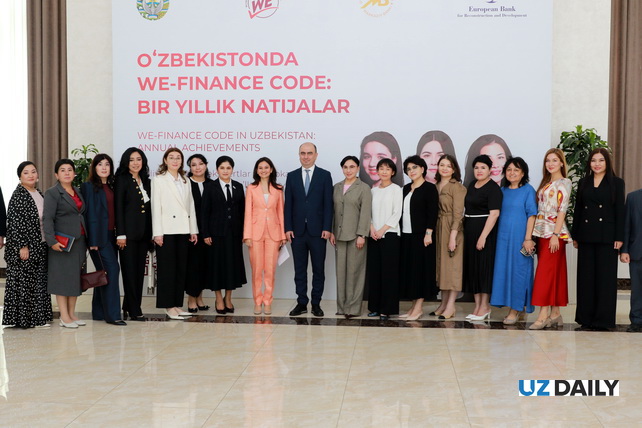“We-Fi Code” — A New Stage in Supporting Women’s Entrepreneurship in Uzbekistan – UzDaily.uz
By Uzdaily.uz
Copyright uzdaily

Tashkent, Uzbekistan (UzDaily.com) — On 15 September, the Central Bank of the Republic of Uzbekistan hosted a presentation marking the first year of implementation of the international initiative Women Entrepreneurs Finance Initiative (We-Fi Code) — the “Code for Supporting Women’s Entrepreneurship.”
International Context of the Initiative
The We-Fi initiative was launched in 2017 at the G20 Summit in Hamburg and has been actively developed with support from international financial institutions and donor organizations, including the World Bank, EBRD, ADB, the Goldman Sachs Foundation, and the Soros Foundation. In October 2023, the official launch of the We-Fi Code took place during the Annual Meetings of the World Bank and IMF.
The Code was developed jointly with representatives from over 30 private and public sector organizations and has become a global platform for expanding women entrepreneurs’ access to financial resources, creating new business opportunities, and strengthening an inclusive economy.
In Central Asia, the We-Fi Code is being implemented in Uzbekistan, Kazakhstan, Tajikistan, Kyrgyzstan, and Mongolia. Uzbekistan became the first country in the region to develop a National Charter and complete the core package of commitments under the initiative.
Significance for National Development
Uzbekistan’s participation in the We-Fi Code provides several strategic advantages: enhancing the country’s image as an inclusive and progressive state promoting equal opportunities; expanding access to international grants, investments, and technical assistance in priority areas; implementing analytical and monitoring tools to systematically assess the impact of financial measures on the development of women’s entrepreneurship; and increasing the transparency and effectiveness of national policies supporting small and medium-sized enterprises.
The international community has particularly recognized Uzbekistan’s leadership in implementing the initiative, emphasizing its importance in advancing gender-oriented financial policies in the region.
Implementation in Uzbekistan
Under the Memorandum of Understanding signed in 2024 between the EBRD and the Senate of the Oliy Majlis, the Central Bank was appointed as the national coordinator of the We-Fi Code.
Over the past year, key steps have been undertaken: the creation of a national coalition of 17 financial sector participants, including commercial banks, microfinance organizations, and relevant associations; preparation and approval of the National Charter outlining goals and commitments of the initiative’s participants; development of a digital platform (dashboard) for monitoring the accessibility of financing for women entrepreneurs; and the preparation of commitment letters with both financial and non-financial support measures.
During the event at the Central Bank, a panel session was held with national and international experts, banking representatives, government agencies, and partner organizations. Special attention was given to participants’ commitments and mechanisms for their practical implementation.
New “champion” participants officially joined the initiative, including the Chamber of Commerce and Industry and the company Hamroh.
To further promote the initiative internationally, a large-scale public forum is planned, involving leaders of international financial institutions, business communities, and media representatives. The forum will serve as a platform to demonstrate Uzbekistan’s leadership and attract new partners.
A key upcoming task is developing a national definition of the term “woman entrepreneur,” as its absence currently complicates systematic accounting and monitoring of women’s business development. The Ministry of Finance and the Ministry of Economy will be involved in drafting this definition.
The results of the first year of We-Fi Code implementation in Uzbekistan demonstrate significant progress in creating a favorable ecosystem for women entrepreneurs. This process opens new opportunities not only for the development of small and medium-sized enterprises but also for strengthening social resilience and economic inclusivity in the country.



